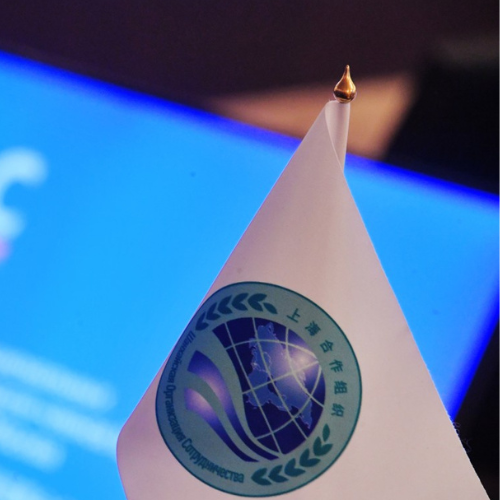The Shanghai Cooperation Organization summit (SCO summit), recently held in Astana, Kazakhstan, served as a pivotal gathering for leaders from member and observer states to discuss and enhance bilateral cooperation amidst prevailing global economic challenges and geopolitical tensions. The summit convened representatives from Russia, Pakistan, Azerbaijan, Mongolia, and China, each bringing forth proposals and initiatives aimed at deepening economic ties and fostering regional stability.
Pakistan’s Proposal: Barter Trade with Russia at the SCO Summit
Pakistani Prime Minister Shehbaz Sharif’s proposal during the SCO summit to reinstate barter trade with Russia captured significant attention. Amidst Western sanctions limiting traditional economic avenues, Sharif advocated for a return to historical trade practices where goods were exchanged directly, sidestepping currency restrictions. He emphasized the potential economic benefits for Pakistan, drawing on past decades when such arrangements facilitated the exchange of machinery for textiles and leather. This proposal not only seeks to mitigate financial barriers but also aims to revive and expand bilateral trade relations under more flexible terms.
Russia-Azerbaijan: Emphasis on Infrastructure and Transport at the SCO Summit
One of the focal points at the SCO summit was the discussion between Presidents Vladimir Putin of Russia and Ilham Aliyev of Azerbaijan on the North-South Transport Corridor project. This ambitious initiative aims to optimize trade routes stretching from Russia, through Azerbaijan, and further southward. Putin highlighted the corridor’s strategic importance in enhancing regional connectivity and reducing transportation costs, thereby stimulating economic cooperation across Eurasia. Aliyev acknowledged recent advancements in the project and expressed commitment to further developing infrastructure on Azerbaijan’s end to maximize its economic potential. The North-South Transport Corridor holds promise not only for facilitating smoother movement of goods but also for bolstering regional integration and trade efficiency on a broader scale.
Mongolia-Russia Nexus: Energy Cooperation at the SCO Summit
Energy cooperation emerged as a key area of discussion during the SCO summit, particularly between President Putin of Russia and President Ukhnaagiin Khurelsukh of Mongolia. With Mongolia facing challenges exacerbated by climate change, Putin pledged Russian support through grain supplies and energy resources. This commitment highlights Russia’s role in assisting Mongolia’s sustainable development efforts. The leaders explored potential joint ventures in energy projects, aligning with Mongolia’s priorities in infrastructure development, particularly in the railways and energy sectors. Such collaborations not only aim to enhance Mongolia’s energy security but also to strengthen bilateral economic ties and promote mutual prosperity within the SCO framework.
Sino-Russian Strategic Collaboration at the SCO Summit
The SCO summit provided a platform for President Putin’s meeting with Chinese President Xi Jinping, highlighting the robust and multifaceted nature of Sino-Russian relations. Both leaders reaffirmed their strategic partnership within the SCO framework, emphasizing mutual cooperation across diverse sectors without forming alliances directed against any other nations. Discussions encompassed ongoing joint projects aimed at advancing energy, infrastructure, and trade initiatives. Their dialogue highlighted the depth of bilateral cooperation and the shared commitment to upholding international norms and fostering stability in the region.
The SCO summit in Astana highlighted its pivotal role as a forum for promoting economic cooperation, infrastructure development, and diplomatic dialogue among member and observer states. From Pakistan’s innovative proposal for barter trade to Azerbaijan‘s strategic emphasis on the North-South Transport Corridor and Mongolia’s collaborative energy initiatives with Russia, the summit showcased a wide array of initiatives aimed at enhancing regional integration and economic growth. These discussions not only reflect the SCO’s capacity to shape Eurasian dynamics but also highlight its potential to foster sustainable development and stability amidst global challenges.
As member states continue to navigate complex international landscapes, the outcomes of the SCO summit are poised to influence future diplomatic strategies and economic policies. By deepening cooperation and fostering mutual understanding, the SCO reaffirms its commitment to promoting peace, stability, and prosperity across Eurasia and beyond.


